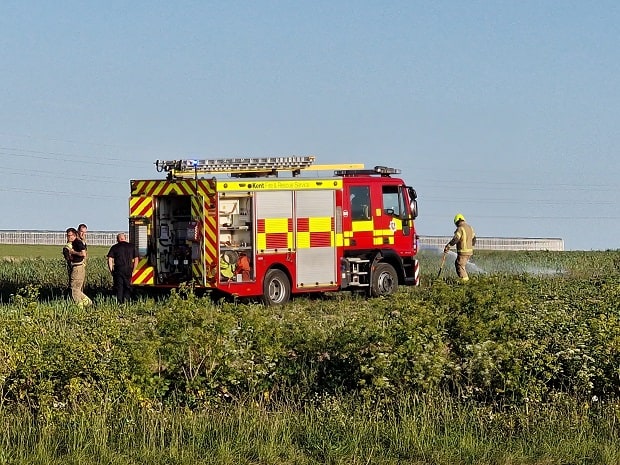
By work experience reporter Yusrah Burghli
An extreme weather amber alert has been issued from today (August 11) running through to Sunday (August 14).
The Met Office says the hot spell will develop across parts of England and Wales, including Kent.
The warning says adverse health effects are likely to be experienced by those vulnerable to extreme heat and adds that more people are likely to visit coastal areas, lakes, rivers and other beauty spots leading to an increased risk of water safety and fire-related incidents.
Met Office Deputy Chief Meteorologist Dan Rudman said: “Thanks to persistent high pressure over the UK, temperatures will be rising day-on-day through this week and an extreme heat warning has been issued.
“Temperatures are expected to peak at 35C on Friday and Saturday, or even an isolated 36C on Saturday. Elsewhere will see temperatures widely into the high 20s and low 30s Celsius.
“Coupled with the high daytime temperatures there will be some warm nights, with temperatures expected not to drop below the low 20s Celsius for some areas in the south.”
Temperatures in Thanet are predicted to reach around 27 degrees.
Record-breaking temperature in July
The hot spell is the second in recent weeks with temperatures reaching a record-breaking maximum temperature on 19 July, with 40.3°C recorded at Coningsby, Lincolnshire.
Kent Public Health issued a level three hot weather alert during that spell and schools including Royal Harbour Academy took measures by providing students with water bottles upon arrival and extended the non-school uniform days permitted.
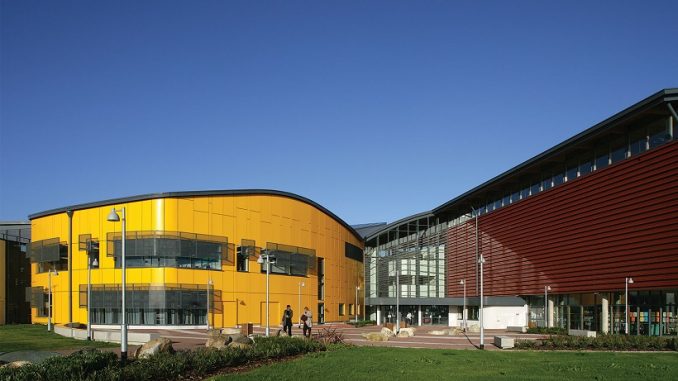
In addition to these precautions, following government guidelines, RHA prohibited students from going outdoors during break and lunchtimes.
The Met Office reported that July was the driest in the southeast since 1935 with the UK experiencing just 56% (46.3mm) of its average rainfall.
Preventing grass, crop and woodland fires
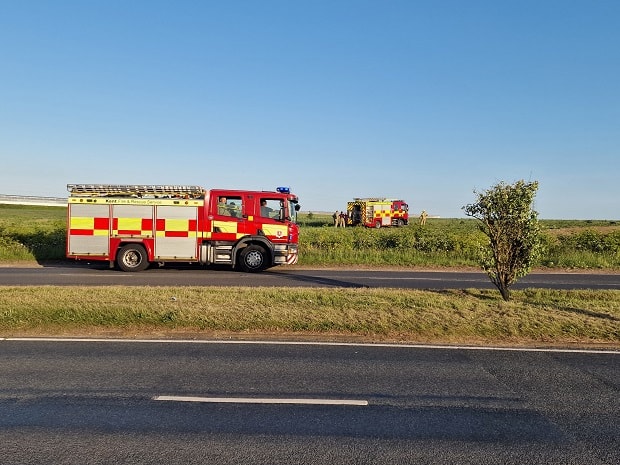
The dry conditions have resulted in Kent firefighters tackling more than 400 grass fires since the start of July, which is nine times the amount attended in the same period last year – an increase linked to the exceptionally hot, dry weather.
The latest hot spell has prompted a warning from Kent Fire & Rescue Service urging the public to do all they can to stay safe and help reduce preventable grass, crop and woodland fires.
KFRS Area Manager Leanne McMahon said: “In prolonged periods of hot, dry weather, fires can develop and spread rapidly, with greater severity and grass fires often require a large amount of fire service resources and can take many hours or days to fully extinguish.
“While some grass fires are not preventable, we want everyone to consider their actions and play a part in reducing the chance of grass fires taking hold in the first place, to protect people, property and nature.”
Advice to help reduce accidental grass fires:
- Avoid having bonfires at this time
- Keep barbecues clear of greenery, fences and property, and always supervise the cooking
- Place disposable barbecues on a flat, non-flammable surface, and only throw them away once cold – whether that’s in a bin or at a waste site
- Make sure cigarettes are stubbed out and cold before being put in a bin – never throw smoking materials on the ground and consider a portable ashtray.
Leanne added: “If you see a grass fire, it’s important to quickly move to a safe place and call 999 – please don’t try to tackle it yourself.
“Some people may also really struggle with the extreme heat, so we ask that residents check in on older or poorly loved ones and neighbours, especially if they live alone, to check they have everything they need to be as comfortable and safe as possible.”
Natural solutions
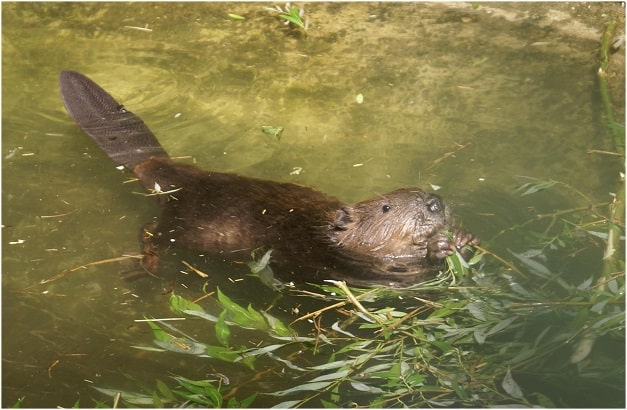
Kent Wildlife Trust has also been working across the county to reduce chances of fires igniting at nature reserves, by recreating wetlands.
Kent’s last remaining ancient semi-natural fenland of significance, Ham Fen, has been creating wetlands with use of beavers as well as water buffalos.
The benefits of the water buffalo opening up the scrub and reedbeds, is that it creates pools which then inhabit fish, invertebrates and amphibians. Alongside this, beavers establish dams that flood parts of rivers which helps to attract fish and insects.
Director of Conservation, Paul Hadaway explains the positive from the creation of wetlands: “If you take Ham Fen as an example, the reserve had been historically drained and continues to be under pressure from water abstraction.
“The team has established a reed swamp habitat and increased the volume of water retained and stored on the site by creating new wetland features, this has allowed us to provide the right environment for the water buffalo and beavers to thrive.”
Their work involves maintaining already existing and establishing new ponds.
A partnership has been formed between the Trust and RSPB, their goals focus on re-wetting woodland (like Blean) to make more resilient towards the aftermath of climate (drastically increased heat).
Kent Wildlife Trust, Director of Conservation, Paul Hadaway said: “We also know that native woodlands are far more resistant to fire than conifer plantations so by encouraging native species to grow and using bison to engineer the woodland in a natural way, like we have in West Blean and Thornden Woods, we can create an environment less at risk to the threats posed by climate change.”
However, Kent Wildlife Trust say nature reserves remain vulnerable to the threat of fire as they have large areas of grass and heathland that would be destroyed if a fire were to break out and it would also devastate the wildlife in the area.
To address this, the public are asked to not bring BBQs to nature reserves.
Hosepipe ban in some areas and conserving water
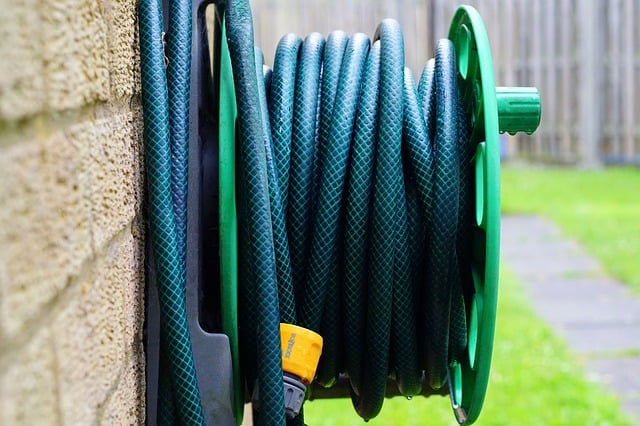
As of August 12, South East Water has enacted a hose pipe ban which covers parts of Kent but not Thanet, which is served by Southern Water.
The SE water company says: “We have been producing an additional 120 million litres of water a day to supply our customers, which is the equivalent of supplying a further four towns the size of Maidstone or Eastbourne, daily”.
The condition of the ban is a restriction on using any hose pipe connected to the mains water supply such as the use of garden sprinklers, irrigation systems, hose pipes and anything attached to them like pressure washers.
Switching to the use of buckets in order to water plants, wash cars and fill pools is heavily advised.
Earlier this week Minister George Eustice called for the hose pipe ban to be extended across the rest of the country.
Southern Water recently introduced a Temporary Use Ban in Hampshire and on the Isle of Wight and also applied to the Environment Agency for a Drought Permit on the River Test.
The Temporary Ban should last up to 3 weeks.
This decision has been described as a “vital step” as to preserve and protect the wild life of that in the River Test and River Itchen (where it gets water).
The ban has not been extended to the areas of Kent provided by Southern Water but the company is asking people to use water wisely.
Southern Water’s suggestions on how to conserve water:
- Keep a jug of water in the fridge – then you won’t need to run the tap while you wait for the water to go cold.
- Avoid using hosepipes or sprinklers (which can use as much as 1,000 litres of clean water an hour) – re-use dishwater or water used to boil vegetables or pasta, and fill a watering can instead. Using a watering can could save up to 4,050 litres a year, that’s equivalent to more than 50 full bathtubs.
- Avoid non-essential chores, like washing cars and windows.
- Take a short shower instead of a bath.
- Leave the paddling pool in the shed and visit a local beach or open air swimming pool instead.
- By turning off the tap while you brush your teeth, you can stop 8,000 litres of water going to waste and save approximately £15 a year.
- Use a container to collect water when running taps to get cool or hot and use that water to water plants or flush the loo.
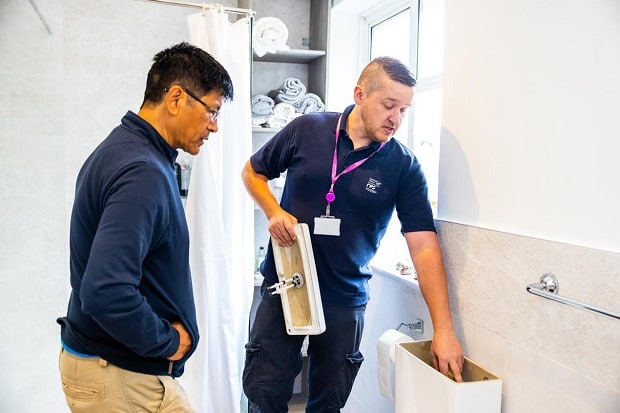
Customers are also being encouraged to apply for Southern Water’s offer of a free home visit – to help them save water, and save on their bills.
Households can register their interest in the free water-saving home visit, where an engineer can fit up to £100 of free water-saving devices in kitchens, bathrooms and toilets. These include tap inserts, water-efficient showerheads and dual-flush converters – even water butts outside.
Met Office advice for coping in the heat

- Look out for those who may struggle to keep themselves cool and hydrated. Older people, those with underlying conditions and those who live alone are particularly at risk.
- If you live alone, ask a relative or friend to phone to check that you are not having difficulties during periods of extreme heat.
- Stay cool indoors: Close curtains on rooms that face the sun to keep indoor spaces cooler and remember it may be cooler outdoors than indoors.
- If going outdoors, use cool spaces considerately.
- Drink plenty of fluids and avoid excess alcohol.
- Never leave anyone in a closed, parked vehicle, especially infants, young children or animals.
- Try to keep out of the sun between 11am to 3pm, when the UV rays are strongest.
- Walk in the shade, apply sunscreen and wear a wide-brimmed hat, if you have to go out in the heat.
- Avoid physical exertion in the hottest parts of the day.
- Make sure you take water with you, if you are travelling.
- Check the latest weather forecast and temperature warnings – you can find these on TV, radio, mobile app or website.
- During warm weather going for a swim can provide much welcomed relief. If you are going into open water to cool down, take care and follow local safety advice.

